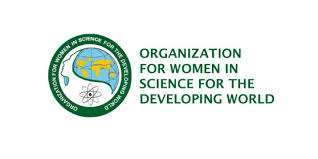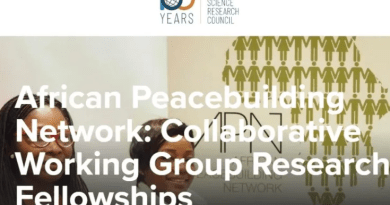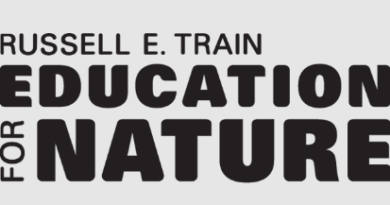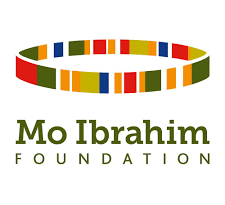OWSD Early Career Fellowship 2024 Call for Applications is now open (up to $50,000 GRANT)
The OWSD Early Career Fellowship program is managed by OWSD and funded by the International Development Research Centre (IDRC), Canada. This program aims to support early career women scientists in conducting important research projects in countries that lack scientific and technological resources. The fellows will carry out their research projects in eligible countries, and they must demonstrate that they have spent a significant amount of time in that country (at least 5 years in total). Additionally, applicants must have a guarantee of employment at the institution where they plan to conduct their research.
Throughout the 2-year fellowship, fellows will enhance their leadership and management skills. They will also establish connections with various partners from the public and private sectors, with the potential to transform their research into marketable products or ensure its broader impact. By improving their communication and outreach abilities, fellows will learn to effectively present their research to different audiences, attracting new collaborators and potential funders to ensure the sustainability of their projects.
By supporting a growing number of Early Career fellows, OWSD is creating a network of exceptional women scientists who can serve as mentors and role models for the next generation of women leaders in STEM.
It is important to note that the OWSD Early Career Fellowship is a two-year program that provides up to USD 50,000 in funding. However, it does not cover the fellow’s salary, which must be guaranteed by their institution.
The applicant’s institution must waive any indirect or overhead costs associated with the research project. However, the budget breakdown can include direct costs for support from the institution that directly benefit the research project, such as the time of lab technicians, maintenance and utilities costs, and administrative officer’s time.
OWSD Early Career Fellowship includes the following:
1. An initial advance payment of 33% of the total grant value.
2. Reimbursements for expenses made using funds advanced by the Administering Institute.
3. Support for direct procurement carried out by the OWSD Secretariat on behalf of the fellows, but only for purchases exceeding USD 4,500.
4. Overhead and indirect administrative costs are not eligible, and including them in the application will result in disqualification.
To assist in the development of your application, a non-exhaustive list of eligible expenses is provided below:
a) Research-related costs:
– Equipment:
– Necessary equipment for establishing research units or setting up a laboratory.
– Training in the use of equipment.
– Maintenance of equipment.
– Consumables:
– Expendable supplies that will be consumed or replaced, such as glassware, solvents, feed, and reagents.
– Research visits, exchanges, and programs:
– Attendance at international scientific meetings, including travel, accommodation, meals, registration, and visa expenses.
– Hosting visiting scholars and/or establishing a visiting scholars program.
– Organizing and hosting scientific events, such as seminar series, international symposiums, themed workshops, regional and international conferences.
– Organizing exchange programs with national/international scholars.
Teaching and Support
1. Academic Qualifications and Research Support
– Master of Science (MSc), Doctor of Philosophy (PhD), and Postdoctoral Researchers
– Research Assistants (e.g., for information and data gathering)
– Teaching Assistants
2. Family Care Assistance
– Childcare expenses to enable fellows to undertake research projects
– Travel support for family members
3. Other Assistance
– Based on the applicant’s needs, such as casual labor
4. Field Work
– Transportation (e.g., car rental, public transport, airfare)
– Board and lodging
– Sample collection and analysis
– Hospitality fees (e.g., dinner with research partners in the field)
– Publication costs (e.g., in peer-reviewed journals, open source)
5. Information Resources
– Subscriptions (e.g., journals, library)
– Literature (e.g., books, reprints, photocopies)
– Library resources
– IT facilities
6. Computer Support
– Computer hardware
– Computer software
– Computer services (internet connections, technical support, database development)
7. Training
– Science communication (e.g., writing for publication, presentation skills)
– English language courses (for improved science communication)
– Specialist courses for team leaders and project staff or group training sessions (e.g., long-distance learning)
8. Other
– Monitoring and evaluation costs (to measure the impact of the research project)
– Rent paid for land or premises used in a research activity
– Any other support costs directly related to the research project (e.g., lab technician’s time, maintenance and utilities costs, administrative officer’s time, etc.).
b) Collaboration with industry and other partners
Engaging with industry and other partners is crucial for the success of research projects. This collaboration can involve various activities, such as visiting companies to understand their needs and explore potential partnerships. The costs associated with these visits, including travel, accommodation, and meals, are eligible expenses.
Furthermore, product development is an important aspect of research. This may involve costs related to patenting, prototyping, and protecting intellectual property. Technology transfer and licensing costs are also eligible expenses.
To ensure the successful transition from research to product, it is essential to invest in research-to-product related expenses. This may include training researchers in understanding and developing intellectual property and patents, as well as acquiring business, management, and marketing skills.
Scaling up teaching programs and training the trainers is another important aspect of research. Offering specialized courses at the PhD level ensures that the level of training in a given discipline is adequate. These expenses can be included in the proposed budget.
A downloadable list of suitable industry, private, or civic partners for collaboration is available for reference.
c) Outreach, communication, and networking
Effective outreach, communication, and networking are essential for disseminating research findings and building connections within the scientific community. Developing a website and creating communication materials, such as flyers and posters, are eligible expenses.
Dissemination activities, such as building a contact database for stakeholders, facilitate information sharing and engagement. Networking initiatives, such as developing online communities or forums, and linking with OWSD members and National Chapters, as well as science academies, are also eligible expenses.
Mentoring programs with industry partners can provide valuable guidance and support to researchers. Translation of project-related documents may be necessary for effective communication, and language courses for researchers can also be included in the budget.
Other costs related to outreach activities, not mentioned in this list, can also be considered for funding.
Please note that this list is not exhaustive, and the Selection Committee will evaluate each expense requested in the proposed budget. The committee will make a final decision on the costs to be awarded, as selection for a fellowship does not guarantee automatic approval of all requested expenses.
In addition to financial support, OWSD provides additional assistance through two training workshops per fellowship. These workshops focus on managing the grant, leadership skills, outreach strategies, and entrepreneurial skills. The first workshop, held in Trieste, Italy, shortly after receiving the fellowship, aims to establish communication and networking among fellows. It also provides guidance on setting up a laboratory, managing a research group, and establishing connections with industry partners
OWSD Early Career Fellowship ELIGIBILITY
In order to apply for the OWSD Early Career Fellowship, applicants must meet the following requirements:
1. Eligible countries
Applicants must have resided in one of the Science and Technology Lagging Countries (STLCs) listed for a minimum of 5 years. These 5 years do not need to be consecutive.
Applicants can be citizens of any country, as long as they fulfill the residence requirement mentioned above.
2. Eligible employment
At the time of application, applicants must provide proof of employment at the university or research institute where the research project will be conducted. If employment has not yet started, proof of employment offer and acceptance confirmation are required.
The institution where the research project will take place must be located in one of the listed STLCs.
Applicants must demonstrate that they will receive a salary from their university or research institute throughout the two-year fellowship.
3. Eligible STEM fields (Science, Technology, Engineering, and Mathematics)
Agricultural Sciences
Astronomy, Space and Earth Sciences
Biological Systems and Organisms
Chemical Sciences
Computing and Information Technology
Engineering Sciences
Mathematical Sciences
Medical and Health Sciences
Neurosciences
Physics
Structural, Cell, and Molecular Biology
Research project proposals from other fields such as social science and education will not be considered eligible.
4. Eligible academic qualification
Applicants must hold a PhD in one of the study fields listed above.
The PhD degree should have been awarded no more than 10 years prior to the application.
RESEARCH PROJECT PROPOSAL
For more information regarding the research project proposal, please click here.
OWSD Early Career Fellowship REQUIRED DOCUMENTS FOR APPLICATION
We highly recommend that eligible applicants begin collecting all the necessary documents as soon as possible. The documents listed below may take several weeks to prepare, especially if they require official signatures.
Applicants are required to submit the following:
1. Passport
A scanned copy of the passport page that contains personal details such as the photo and document number.
A passport-size portrait photo.
2. Proof of residence
Official documentation that proves residency in one of the eligible STLCs for at least 5 years. The following documents can be submitted as proof of residence as long as the applicant’s address and name are clearly stated: certificate of residency, statement from the local police office or municipality, population registry office, rental agreement, utilities bills, or employment contract. This is not an exhaustive list, and alternative documents may be considered.
If you are submitting any supporting documents in your local language, you must provide an informal translation into English. Documents without an English translation will not be considered.
3. PhD certificate
A scanned copy of the PhD certificate or proof of PhD issued by the University.
4. Proof of employment
A letter from the employer (dean, vice-dean, or equivalent head of the applicant’s institution) on official letterhead confirming the applicant’s position at the institution and stating that the applicant will receive a salary for at least two years starting from the year of application. IMPORTANT: Please use the downloadable template provided.
If the applicant has not yet started employment, proof of employment offer and confirmation of acceptance will be required, to be submitted along with the completed and signed template mentioned above.
5. Curriculum Vitae
A complete and updated CV.
6. Publications
A comprehensive list of publications.
7. Reference letters
Applicants are required to submit two (2) reference letters, with at least one letter being from a senior scientist who is familiar with the applicant’s recent research. These letters should include the contact details of the referee for any follow-up required by the Selection Committee.
In addition to the reference letters, applicants must also provide a supporting statement from the head of their institution. This statement should be completed and signed by the dean, vice-dean, or an equivalent head of the institution. The supporting statement can be downloaded from the provided link.
Furthermore, applicants are requested to upload a standardized budget file in Excel format. This file should include all the necessary items and related costs required to carry out the research project. The budget file will be available for download from the online application system.
If desired, applicants may also submit additional documentation that provides evidence of their skills, qualities, or actions described in the research project. This could include certificates of awards, memberships, or any other relevant documents. All documents, including the reference letters, supporting statement, budget file, and additional documentation, must be uploaded through the online application system. Please refrain from emailing any documentation to OWSD.
OWSD Early Career Fellowship EVALUATION
The applications will undergo assessment based on the following criteria:
Research proposal
Problem identification: The problem addressed should be original, relevant, and significant. The applicant should demonstrate expertise and innovation in research that will gain recognition at national, regional, and international levels.
Feasibility: The methodology, infrastructure, and work schedule should be well-planned and achievable.
Context: The applicant’s institution should have adequate resources to support the applicant, and the heads of department/institution should show support for both the applicant and the research project.
Collaborations and networking: The applicant and the institution should have established and ongoing connections with relevant organizations and individuals at national, regional, and international levels.
Linking with industry and other sectors: The OWSD Early Career Fellowship emphasizes collaboration between scientists and industry, private, or civic partners to foster inclusive economies and societies. The evaluation will consider the strategies implemented to establish such partnerships, efforts to convert research findings into marketable products or processes, and the development of prototypes or future plans. Additionally, the evaluation will assess the support mechanisms in place or planned at the institution to facilitate relationship building with private sector partners (e.g., technology transfer office, intellectual property/legal office, or career center).
Impact: The research should have a positive impact on communities, such as increased access to resources for marginalized groups, improved knowledge and training in a specific subject, or the development and utilization of products by local communities.
Inclusiveness: The research design and product development should demonstrate awareness of and relevance to diverse members of the community, including women, indigenous peoples, ethnic minorities, sexual minorities, and possible connections between disability and development.
Sustainability: How will the applicant secure funding, partnerships, links with industry and the private sector, or in-kind contributions to ensure the work can continue after the OWSD Early Career Fellowship funding has ended?
Ethical, environmental, and risk factors: The applicant has considered these aspects and addressed their mitigation.
Applicant’s profile:
Scientific excellence: The applicant has demonstrated scientific excellence through activities such as publications, invitations to speak at international and regional conferences, chairing and convening panels and meetings, reviewing journal manuscripts or research grant proposals, receiving national, regional, and international grants and awards, and being a member of academic boards, committees, and associations.
Leadership skills: The applicant has shown leadership skills through engagement in supervision, heading a team, coordinating a program, organizing events, founding a group, committee, or task force, leading a campaign or movement, advising roles to ministers, academic bodies, and civil society organizations, and influencing positive change in practices and policies in academia and beyond.
Outreach skills: The applicant has demonstrated outreach skills through engagement in community activities such as mentoring, tutoring, science communication, advocacy, volunteering, networking, and support for youth.
OWSD Early Career Fellowship SELECTION:
The OWSD Early Career Fellowship aims to support research that will have a tangible impact on the local, national, or regional community.
Applications will undergo a thorough review by a panel of distinguished scientists who specialize in each STEM subject and possess knowledge of the challenges faced by women scientists from developing countries. The committee members will be appointed by OWSD, and the selection meeting will be chaired by OWSD.
Applications will be evaluated based on scientific quality, project feasibility, and geographical and scientific field distribution.
OWSD Early Career Fellowship APPLY
The 2024 Call for Applications is open as of 5 February 2024. Deadline for completed online applications: 14 March 2024 (at 23:59 Rome time) APPLY NOW





